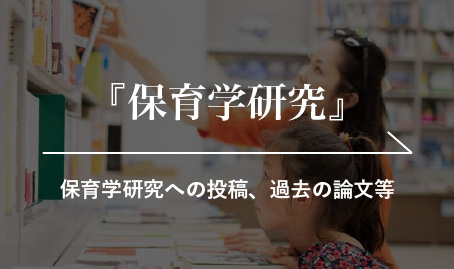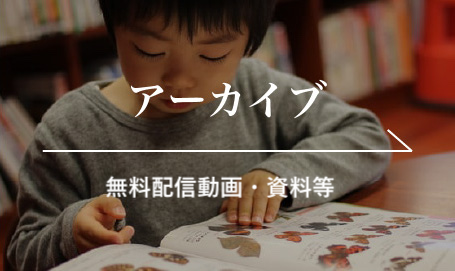< VOLUME 53, No.1 >
Ryutaro Nishi. The
nursery school teacher theory of Sozo Kurahashi as seen in the novel Natsuko:
focusing on the process in search of identity.
Research on Early Childhood
Care and Education in Japan, 2015, 53(1),
6-17.
The nursery school teacher
theory of Kurahashi Sozo has been studied mainly in the conceptual realm. But
since a teacher’s quality is not something to be emulated mechanistically, but
rather to be realized through each teacher herself, we should appreciate
Kurahashi’s theory not only conceptually but through the concrete pro- cesses
and experiences. I examined Kurahashi’s novel Natsuko, whose theme centers
around a teacher’s search for identity, and derived essential elements of his
theory from it. In the teacher’s search for identity, active and holis- tic
commitment, the process of unconscious incubation, and learning from encounters
with children are shown to be important momenta, though rarely explicated in
previous studies. Teachers’ reflections were discussed as an issue for further
research.
Keywords: nursery school teacher, Sozo
Kurahashi, identity,
narrative, reflection
—————–
Yumiko Aiga. A Study
Concerning German Early Childhood Education Based upon “Situational Approach
(Situationsansatz)”, Its Quality and Method of Evaluation with Special
Attention Given to the Studies of INA (Internationale Akademie).
Research on Early Childhood
Care and Education in Japan, 2015, 53(1),
18-30.
With the “school evaluations”
of Japanese early childhood education in mind, this paper aims to elucidate re-
search results relating to the quality of German “Situational Approach
(Situationsansatz)” and the methods used in evaluating that approach. I have
first examined the accomplishments of the INA study group. Their research has
been fruitful in two significant ways. The first is that they have shed light
on the fact that quality is con- tinually reformed through a dynamic process of
conceiving a basic principle which itself is done by fusing self- evident macro
theories and experience-based micro viewpoints. The second is that they have
published specific internal and external evaluations which are participatory
approaches for quality improvement.
From these, I have shed light
on the following aims: promoting self-improvement and development among those
who are involved in quality improvement, further establishing autonomous
professionalism based upon the teacher’s own motivation, and organizational
development as democratic communities.
Keywords: situational approach, basic
principle, internal evaluation
—————–
Machiko Tsujitani. Four-year-old’s
Awareness of Norms in “Words for Asking Permission”: Consulting Others as a
Standard of Decision-making.
Research on Early Childhood
Care and Education in Japan, 2015, 53(1),
31-42.
This study aims to analyze
how Japanese pre-school children, through their relationships with others,
under- stand the importance of norms. In two different years, two different
classes of four-year-olds were observed, fo- cusing on words used to ask for
permission. Episodes were analyzed in two respects: (1) the structure of
relation- ships referred to by children when making decisions related to
understood norms; (2) the methods used to help children realize the importance
of norms. It was clarified that the children not only rely on the adults’
authority, but also refer to the other children’s intentions, and that the
responses from the teachers can help lead children to think by themselves and
understand the importance of norms. Based on the results of this study, further
analysis of changes due to age, time period, and teachers’ responses are
necessary.
Keywords: pre-school children, norms,
relationships
—————–
Maiko Hirano,Toshiko
Kobayashi. Children Interacting with Objects during Clean-up Time at a Kindergarten,
with Attention Paid to Property and Common Property.
Research on Early Childhood
Care and Education in Japan, 2015, 53(1),
43-54.
This study aims to elucidate
experiential content in a clean-up scene by looking at how children interact
with objects. We observed a three-year-old boy in the scene for a year and
recorded it. The episodes were analyzed in terms of property and common
property. In the clean-up area, the child returned to common property those
things he had played with: things he had possessed, selected, and/or used to
build something. This was a rich experience in that the child was able to
experience the enjoyment of possession and/or attachment to things and then by
his own volition to dismantle those things and return them to common property.
An additional signifi- cance of clean-up time became clear: it is a situation
in which children may practice understanding the inten- tions of others based
upon the things those others create
Keywords: clean-up scenes, possession, collective
possession, attachment to objects, other
children’s intentions
—————–
Michiko Ishii,Sonoko Egami. A Case
Study in Determinants for Sympathetic Behavior in Children: From a Comparison
of Parents.
Research on Early Childhood
Care and Education in Japan, 2015, 53(1),
55-65.
At the age of two, children
begin to differentiate between themselves and others. This age sees great
growth in their ability to understand others – an ability related to their
capacity for self-awareness. These developments are connected to their
increasing ability to sympathize. In the current study, we have done a
comparative study of mothers and fathers with the aim of exploring what sort of
relationship brings out sympathetic behavior in two- year-olds. In Part I of
our research we made inquiries into the ways affection is shown to children. In
Part II we observed the parents and child in a free play scene, as well as in a
scene set up to test for sympathy evocation. The results suggested that whether
the child was interacting with the father or mother was not a factor in
displays of sympathy. Rather the important factors seemed to be the
quantitative issue of how much contact the parent has with the child and the
qualitative issue of the nature of that contact on a regular basis.
Keywords: sympathy, two-year-olds, care-giver, emotional
expression, interaction
—————–
Gota Matsui, Koji Etchu, Park
Shinyoung, Sumino Wakabayashi, Reiko Kaji, Minako Yashima,Akira Yamazaki. How Do
Nursery School and Kindergarten Teachers Assess Their Experiences of Early
Childhood Education and Care for Children with Special Needs?.
Research on Early Childhood
Care and Education in Japan, 2015, 53(1),
66-77.
The purpose of this study is
to examine how nursery school and kindergarten teachers assess their experi-
ences of early childhood education and care for children including those with
special needs. We interviewed 22 nursery school and kindergarten teachers and
analyzed their narratives. These narratives included the binary op- positional
structure “participation/non-participation”. The result was that there were
some practical suggestions about “events”, “group activities”, “environment
creation” and “the presence of assistant teachers”. In conclusion, the link was
reconfirmed between children’s learning and the immutable "watch over them
(mimamoru) so they can feel at ease" nurturing style. I submit that a
review of records and debates is necessary to create a cycle for deconstruction
practices.
Keywords: Nursery School and Kindergarten Teachers, Special Needs, Universal
Design, Narrative,
Deconstruction
—————–
Yuko Hayashi. The
Significance of Contact Books in Relationships between Parents and Caregivers.
Research on Early Childhood
Care and Education in Japan, 2015, 53(1),
78-90.
To clarify the significance
of contact books, this study focuses on their description from the perspective
of relationships between a caregiver and a parent that determine the quality of
the childcare process. Findings from a qualitative analysis of a year’s entries
in one parental contact book confirmed that entries of the parent and the
caregiver increased in scope over time, making possible the following
observations: (1) contact books can serve as a record of the development of
mutual understanding between caregivers and parents; (2) the relationship
between caregivers and parents determines the quality of the childcare process;
(3) it is necessary that caregivers share parental recognition and perspectives
on development; and (4) the need for improving the quality of child- care
structures may be reasonably suggested.
Keywords: parents, caregiver, contact
books, relationship, the
quality of process
—————–









